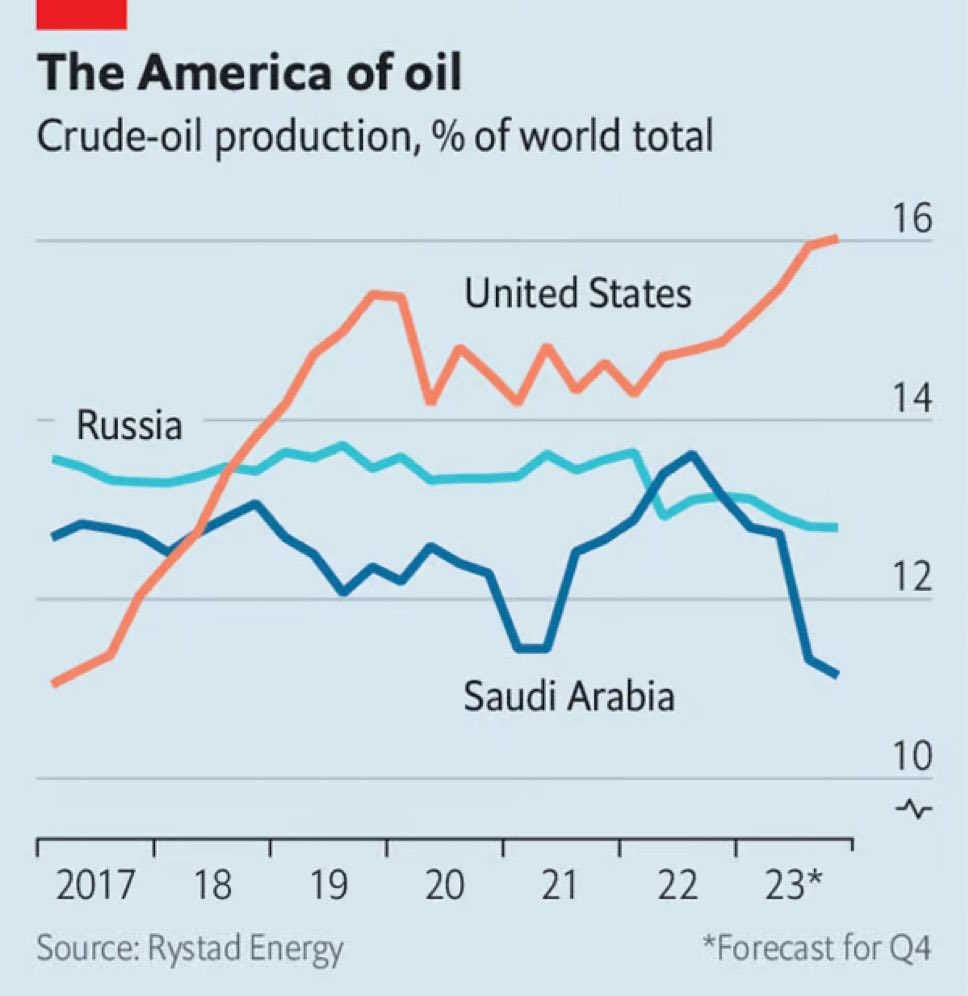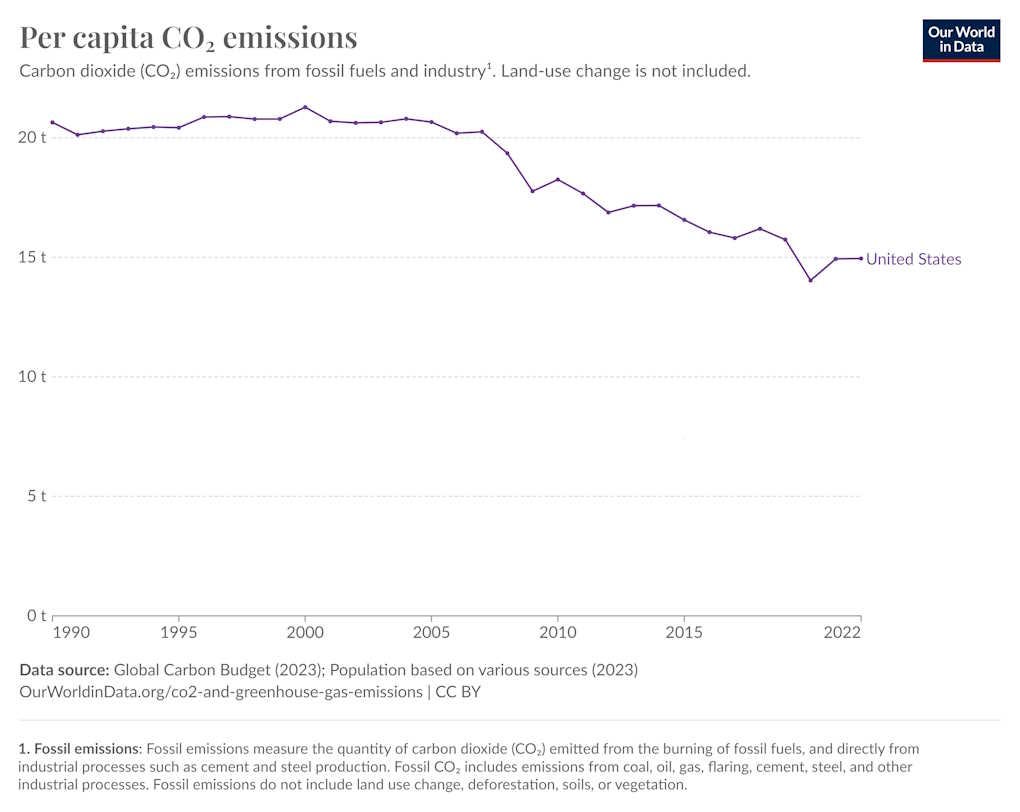Harris needs to be Pennsylvania fracking's biggest champion
Biden already boosted fracking. Harris needs to promise more of the same.

Kamala Harris is doing well in the national polls, and in some swing states, but she’s struggling in the all-important state of Pennsylvania. Her weakness in the Keystone State is why Nate Silver’s election forecasts, which predict that Pennsylvania will be the pivotal state in November, continue to predict a Trump victory. There are a number of reasons for this — Harris isn’t a Pennsylvania native like Biden, and she passed on the state’s popular governor Josh Shapiro when making her VP pick. But every article I read cites the fracking issue as the #1 reason why a Pennsylvania voters worry about Harris. For example, here’s MSNBC:
In 2019, Harris was supportive of a federal ban on fracking. But in a CNN interview last week, she pledged not to ban the practice as president, saying her perspective was shaped by clean energy gains that were made in the Biden administration without the passage of such a ban.
“I have made it clear that in our state, this is both a jobs issue and energy issue,” Sen. Bob Casey, D-Pa., said in an interview, adding, “There’s no question it’s a significant issue in the state. And I was heartened when, right after her campaign was launched, her campaign made it clear that she wasn’t going to have a policy of banning fracking. That’s a consensus position.”
Harris has already repudiated her 2019 position, and promised not to ban fracking. She repeated this promise at the recent presidential debate:
"I will not ban fracking. I have not banned fracking as vice president of the United States. And, in fact, I was the tie-breaking vote on the Inflation Reduction Act, which opened new leases for fracking," Harris said Tuesday [at the debate].
This is a very good step, but Harris needs to go much further. Instead of simply promising not to ban fracking, she should promise to expand it. And she should be loud and unambiguous about trumpeting what Biden has already accomplished in this regard. The fate of the election could hinge on this. But it also happens to be good policy.
Why fracking is so important to Pennsylvania’s economy
First I think I should point out why fracking is essential to Pennsylvania’s economy. The Marcellus Shale, the country’s biggest source of natural gas, is located almost entirely in Pennsylvania and West Virginia:
Usually, both politicians and pundits think about the economic importance of something like the Marcellus Shale in terms of how many jobs it directly supports. No one knows exactly what this number is for the state of Pennsylvania, but industry estimates are around 123,000.
A lot of people, especially climate activist types, will dispute that figure and claim that it’s an overestimate. But in fact, it’s probably a big underestimate, because of economic effects that even the fracking industry itself doesn’t understand. I’m talking about local multipliers.
Almost none of the gas that gets produced from the Marcellus Shale gets consumed locally — it gets sold to other towns, other states, and other countries. From the perspective of towns in the Marcellus region, it’s export revenue.
Export revenue creates a “local multiplier”. Every dollar that comes in from outside gets circulated locally. It gets spent on construction and heating and lighting, on doctors and dentists and tax prep services, on haircuts and pizza and everything else that makes a local economy tick. Estimates of this effect for shale gas and similar industries range from 1.3 to 2, meaning that for every job shale gas creates, there are 1.3 to 2 other jobs created locally.
Those jobs almost certainly aren’t included in the industry association’s estimates — if you said that jobs in pizza restaurants and hair salons were supported by fracking, the climate activists would laugh at you. And yet it’s true! Without fracking, whole towns would have no real economic reason for existence.
And once you add in the dependents of all those workers, the number of Pennsylvanians whose economic livelihood depends on fracking is probably in the hundreds of thousands. That’s a constituency Harris simply can’t afford to lose.
A fracking ban was always a bad idea
2019 was the high water mark of the socialist movement that was unleashed by Bernie Sanders’ 2016 campaign. The socialists put climate front and center, putting forward the unworkably expensive and over-ambitious Green New Deal, only to see it flop. Undaunted, they proposed other policies, including a ban on fracking. This was more successful, with states like New York and Vermont banning the practice, and national polls showing lukewarm support. But it was obviously a lot less popular in states like Pennsylvania.
The idea of a fracking ban wasn’t just bad politics; it was bad policy. Yes, fracking has its problems — methane leaks and toxic runoff, plus the fact that natural gas itself is a fossil fuel. But all of these are manageable problems. A whole bunch of technological solutions have been found to minimize water pollution from fracking, as well as reducing methane leaks. Meanwhile, natural gas hasn’t stopped the rise of renewables at all, as some environmental activists feared, and it releases a lot less carbon than the coal it replaced. Thanks largely to fracking, the amount of carbon the average American emits has gone down by a quarter since 2006:
But in addition to the environmental and economic benefits of fracking, there are big geopolitical reasons to support it. The Ukraine war cut much of Europe off from Russian gas, but America has stepped in to save the day with LNG exports:

This boosted American growth while saving our European allies from economic collapse. And fracking is what makes this possible.
It’s also worth noting that although the Marcellus Shale itself doesn’t produce a lot of oil compared to other locations, oil fracking is what has made the U.S. the new global powerhouse of the oil industry:

U.S. fracking has kept oil prices in check, giving the U.S. economy a boost, reducing Russia’s ability to fund its war in Ukraine, and weakening a variety of other petrostates like Iran.
Joe Biden ended up doing exactly the right thing by encouraging fracking rather than trying to strangle it. But as with so many other policies, he did it quietly, and has failed to get as much credit as he deserved. Kamala Harris should change that.
Biden championed fracking quietly; Harris should do it loudly
Biden has been the all-time champion of domestic oil production, and of fracking. This wasn’t an accident — it was deliberate policy:
After Biden took office, his administration kept issuing oil and gas permits and did so at a slightly faster pace than his predecessor Donald Trump. The…Inflation Reduction Act…yokes oil and gas lease auctions to wind and solar projects on federal lands and blesses such leases in the Gulf of Mexico and Alaska’s Cook Inlet.
More consequentially, in the past year, the Biden administration dramatically increased liquid natural gas (LNG) exports to Europe. As reported by The Guardian, Biden “paved the way for new pipelines and export facilities, established a new taskforce to boost gas exports to Europe, and approved $300 million in funding to help build out gas infrastructure on the continent.”
You don’t hear Biden trumpeting these policies or these accomplishments much, and I think there are two reasons for that. First, Biden has generally been a modest President who does good things without taking sufficient credit for doing them. Second, Biden is probably wary of alienating Democrats’ progressive activist base, which really, really dislikes the fossil fuel industry.
Matt Yglesias has argued that this is a mistake, and that climate is much less of an important issue than Democrats think. But whether or not Yglesias is right, I think that Harris really doesn’t have to worry about losing progressive voters by championing fracking in Pennsylvania.
As I see it, there are basically two groups of progressive voters. The first, a small group of extremists, would indeed be willing to abandon Harris over support for fracking — if they hadn’t already abandoned her, and the Democratic Party in general, over Palestine, or over the fact that she said she wanted a “lethal military” at the convention, or over the fact that Dick Cheney endorsed her, etc. These voters are a lost cause, and are (fortunately) electorally insignificant.
The second, much larger group of progressives is pragmatic and reasonable enough to realize that even with maximal support for fracking, Kamala will be much, much better for the climate than Donald Trump would be. Trump would likely abandon or try to sabotage the Inflation Reduction Act, the most consequential piece of climate legislation in American history. Harris would not; in fact, she would extend and strengthen promotion of green energy. An “all of the above” energy policy is simply far, far better for the climate than Trump’s policy of sabotaging energy sources that don’t fall on his side of the culture war.
My prediction is that the number of progressives who are unreasonable enough not to realize that Trump is far worse on climate, but reasonable enough not to have already abandoned the Democrats, is vanishingly small. I predict that this tiny slice of voters is far outweighed in importance by the Pennsylvania normies who just want to preserve their jobs and their towns. Meanwhile, overall American support for fracking has risen, as Americans have refocused on pocketbook issues in the wake of the pandemic.
Thus, I believe Harris should not just promise not to ban fracking, but should go around Western Pennsylvania talking about how she plants to expand fracking, while also making it clear that she plans to expand green energy and green manufacturing at the same time. She should be specific about projects that she’ll encourage and new licenses she’ll grant. That promise will make it abundantly clear that Harris’ candidacy poses no threat whatsoever to Pennsylvanians’ way of life, and neutralize Trump’s main vector of attack. It’s good policy and it’s good politics.




As the former Chief Economist at the PJM Interconnection, PA is a key state not just for marchas but also power production. PA is a net exporter of power to the rest of the footprint which runs from the Jersey Shore to Chicago and down through VA into NC. The Marcellus shale has resulted in huge emissions reductions across this 13 state (plus DC) area based solely on economics. Has fired generation technology has made huge improvements in efficiency over the past 15 years adding to emissions reductions.
Going forward gas will play a pivotal role in the energy transition allowing for the reliable integration of variable and intermittent resources (wind, solar, batteries) in real time operations that will further reduce emissions.
Totally agree Harris needs to embrace fracking and articulate clearly the jobs issue and energy centrality of PA while pointing out these features of the shale gas revolution.
Would anyone believe her?
She has 50 days.
Wouldn't the story also be "Harris's cynical reversal on fracking?"